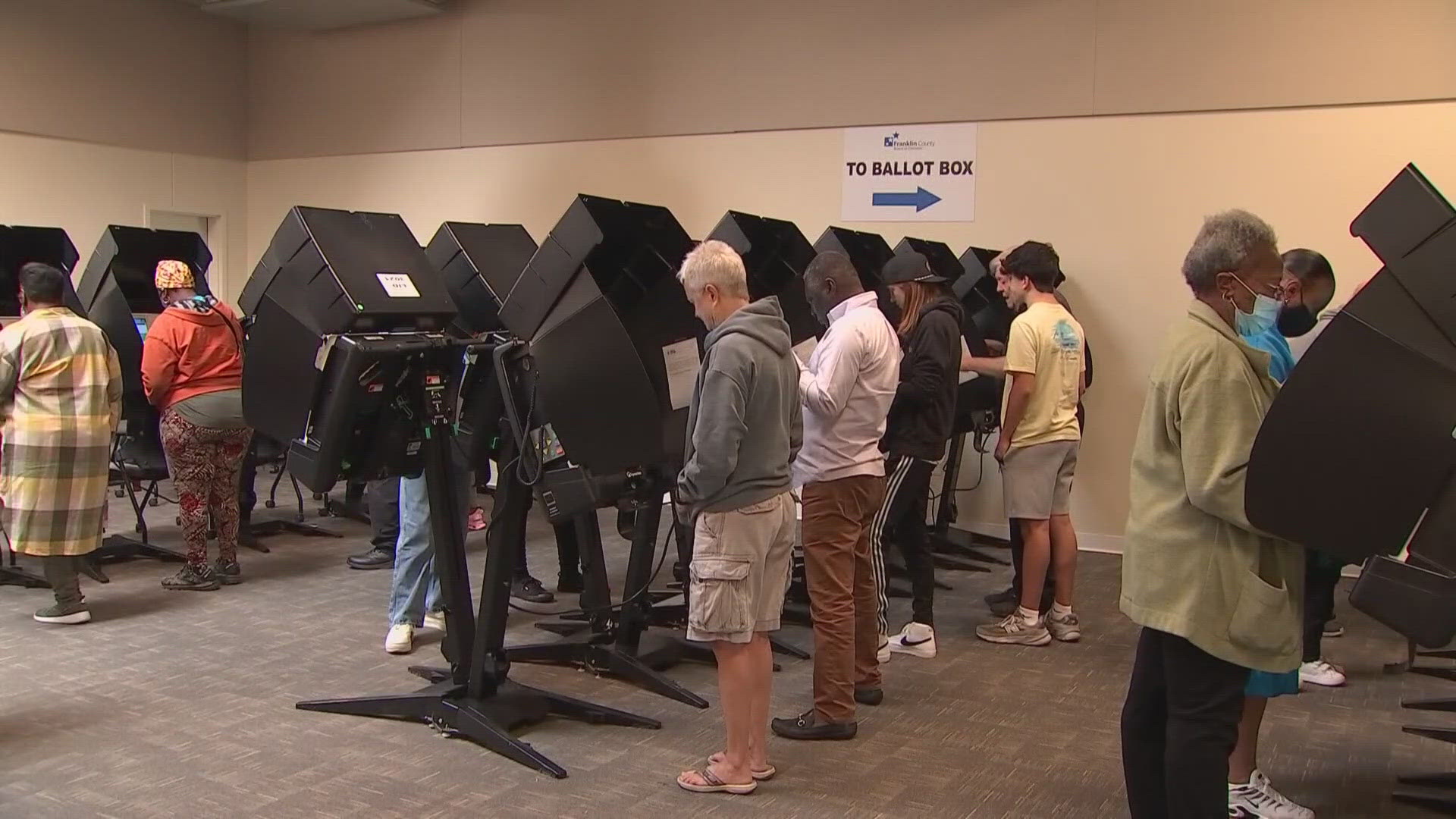COLUMBUS, Ohio — A quick poll of Ohio voters in October showed that they know the importance of casting their ballot, especially when it comes to the three seats on the Supreme Court of Ohio that are up for grabs.
"I'm from Venezuela where we used to be a democracy. And then boom…changes for the last 25 years,” said Luis Gil.
"It is important to vote because this is where decisions are made,” said Pamela Walker.
"I think all the races are extremely important. Particularly the state supreme court because it will impact things for many years to come,” said Deborah Humphrey.
But when it comes to choosing who to put in those seats a state judicial elections survey found that more than 60% of voters struggle because they don't know enough about the candidates.
"Who am I voting for? Why am I voting for (you)? What's your history? What's your record?" said Ohio voter Caprena Ross.
It's a trend that’s leading some to rely on party lines.
"I admit that I felt somewhat unsure because I'm not particularly familiar with those names on the ballot. But I'm trusting party affiliation,” said Humphrey.
We found that others had to use a cheat sheet to help make a choice.
"My wife got me to write down who I need to vote for based on how I feel about things in this world and that's the way I do it,” said Ohio voter Roy Izzo.
But according to the Ohio Bar Association’s CEO Mary Augsburger, it's also leading others to not vote in those races at all.
To help everyone make a more informed decision, Judicial Votes Count was created.
The site has information on judicial races by county, profiles of judges and answers to commonly asked questions.
"You'll hear from them about what their legal experience is, what their judicial philosophy is, what their community involvement has been. And you'll be able to judge a little bit more about their character as well,” said Augsburger.
And though the site does include party affiliation Augsburger is encouraging voters not to give that too much weight.
"Judges are supposed to set aside any bias and decide a case based on the facts before them and how the law is applied as written. So what's more important to look at is their experience, is there community involvement and their judicial philosophy,” said Augsburger.

